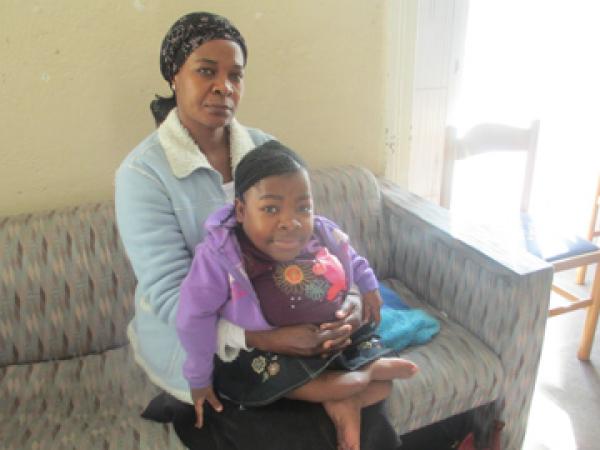Mother and disabled daughter face deportation after going to hospital

A 46-year-old Zimbabwean woman, Fortunate Makamba, and her 17-year-old disabled daughter, Alice Chitsuro, are facing deportation. Makamba arrived in 2012 after the Cape Town Refugee Reception Centre stopped granting asylum to newcomers.
Chitsuro was born with osteogenesis imperfecta, a genetic disease in which a person’s bones break very easily. On Chitsuro’s clinic cards are written ‘handle with care’. When she was still living in Zimbabwe, she broke her hands and legs several times.
On 8 May 2014, Chitsuro broke her hand and was taken to Tygerberg Hospital by Makamba. The doctor who attended her wanted a wheelchair to be available before she was discharged, and appropriate schooling to be arranged.
The doctor referred Makamba to the hospital’s social worker. Because Makamba is not legally in South Africa, the social worker emailed all the information such as her address, employment details and copies of her passport to Home Affairs.
The only help she could obtain from the social worker was a contact for a state facility that rents out wheelchairs for R300 per month. The social worker told Makamba to go to Home Affairs to fix her papers. At Home Affairs both her and her child’s passports were confiscated. She was given notice to appear before an immigration officer on 12 May 2014.
Nontle Mdazuka of the Cape Town Home Affairs Immigration Inspectorate wrote to the hospital social worker, “Ms Fortunate Makamba, whose child has been admitted by the names Alice Chitsuro, does not qualify for the services mentioned on the letter. It is unfortunate the department can only assist with their deportation back to Zimbabwe … Once the child has been discharged from the hospital, this office will need a letter confirming that she is fit to travel before we can arrange taking them back to Zimbabwe”.
Chitsuro needs to visit the hospital again for appointments on 12 June and 4 August 2014 respectively. After that it appears Home Affairs intends to deport her and her mother.
Makamba said since Chitsuro was two years old, she had tried to seek help from the Zimbabwean government welfare department and NGOs, but had no success.
She hopes to raise money to send her child to a secondary school. She separated with Chitsuro’s father after she was born. She also has two other older children with Chitsuro’s father. She claims that before he divorced her, the father told her the Chitsuro clan do no father disabled children. He refused to give financial support.
Chitsuro learned to work on computers at Jairos Jiri Primary, a school for children with disabilities. “One day,” she says, “I would like to be an IT person. I wish my mother would get money to send me to high school, and buy an adjustable wheelchair to use when I travel. My thigh is swollen and my chest is sore because of being carried on the back.”
On 16 May 2014, the immigrants’ rights organisation PASSOP sourced a wheelchair for Chitsuro through the Chaeli Campaign, a charity that assists children with disabilities.
Makamba said that Chitsuro’s passport was still valid when she was admitted to hospital. Her visitor’s stay granted to her by the immigration office expired on 11 May 2014 and the passport is in the possession now of Home Affairs.
Next: The myth of the lady with the lamp
Previous: Social grants being illegally deducted before reaching recipients

This article is licensed under a Creative Commons Attribution-NoDerivatives 4.0 International License.


